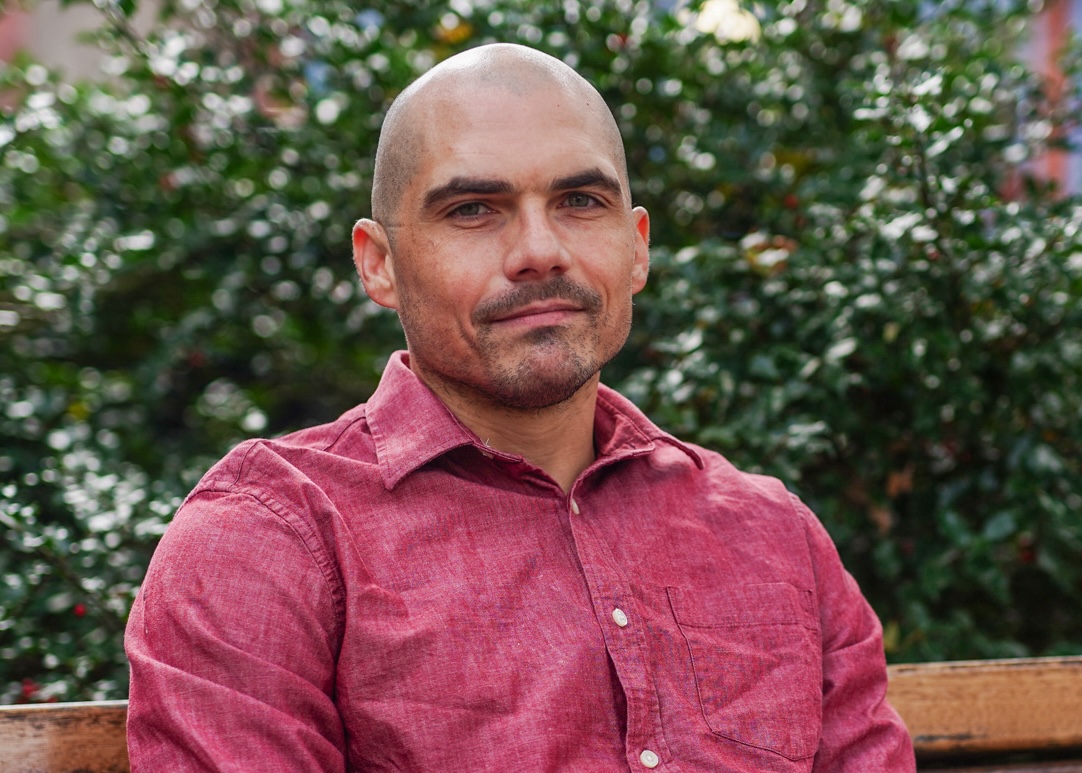
- January 13, 2025
- By
As we kick off the New Year at NouraLife, I want to shine a light on a topic that's central to your mental and physical well-being: sleep. You might not think much about it beyond using it to recharge, but sleep is far more than just a break from your daily routine—it’s the key to unlocking your full potential. Let’s dive into why psychologists study sleep, and why you should prioritize it.
Sleep: Your Superpower for Health and Performance
Think of sleep as your body’s ultimate repair crew, working tirelessly to keep you healthy, focused, and productive. Sleep is vital for both physical and mental health, and researchers believe it evolved as a protective mechanism to keep our ancestors safe from nocturnal predators while conserving energy. Even now, sleep continues to serve as a vital foundation for our survival and well-being.
Here’s what happens while you sleep:
- Physical Repair: Muscles rebuild, tissues grow, and hormones critical for growth and stress regulation are released.
- Mental Rejuvenation: Your brain processes the day’s events, consolidating memories and forming neural connections for learning and growth.
When you skip sleep, it’s like skipping maintenance on a machine you rely on every day. It can result in breakdowns in health, mood, and focus.
The Sleep-Mental Health Connection
When clients tell me they feel tired, unmotivated, or overwhelmed, my first question is always: "How’s your sleep?" It’s that important. Poor sleep often leads to mood issues, anxiety, and lack of focus—problems that can worsen if not addressed.
The relationship between sleep and mental health is cyclical:
- Poor sleep increases anxiety: Without adequate rest, your brain’s emotional regulation system becomes unbalanced.
- Chronic lack of sleep fuels depression: Sleep deprivation is a significant risk factor for mood disorders.
- Resilience diminishes: Stress becomes much harder to manage when you’re sleep-deprived.
Psychologists study sleep because it’s central to emotional resilience. Prioritizing sleep is a fundamental step toward improving your mental health.
Sleep: A Key to Memory and Cognitive Growth
Sleep is not just a break for your body; it’s when your brain does some of its most important work. Here’s how:
- Slow Wave Sleep (SWS): This stage of deep sleep helps reinforce memories, transferring short-term information to long-term storage.
- REM Sleep: This phase processes emotions, boosts creativity, and even helps with problem-solving.
If you've ever woken up with a solution to a problem, you can thank your brain for working overtime during sleep. Understanding these processes reveals why psychologists are so passionate about studying sleep—it’s essential for both cognitive and emotional growth.
The High Cost of Sleep Deprivation
Chronic sleep deprivation isn’t just inconvenient—it’s dangerous. Here’s what happens when you skimp on sleep:
- Physical toll: Increased risk of heart disease, diabetes, and a weakened immune system.
- Cognitive decline: Slower reaction times, impaired decision-making, and more mistakes.
- Emotional burnout: Sleep deprivation can mimic the effects of a traumatic brain injury, according to experts.
The bottom line: cutting corners on sleep isn’t saving you time—it’s stealing your health and happiness.
Breaking the Stress-Sleep Cycle: Finding Peace in Your Mind and Body
Stress and sleep deprivation often feed into each other, creating a negative cycle that’s hard to break. But you don’t have to be trapped in it. Understanding the cycle is the first step toward mastering your sleep.
Here’s how it typically works: You feel stressed or anxious, which keeps your mind racing, making it nearly impossible to fall asleep. The next day, you’re exhausted, and the lack of sleep amplifies your stress, creating a vicious loop.
Breaking the cycle is possible—and it starts with calming your mind and preparing your body for rest. Here are a few strategies to interrupt that loop:
- Mindfulness and Deep Breathing: Calm your nervous system with deep breathing exercises like box breathing (inhale for 4 counts, hold for 4, exhale for 4, hold at the bottom for 4). This is an excellent tool for slowing your heart rate and signaling your body that it’s time to relax.
- Progressive Muscle Relaxation (PMR): Release tension starting from your toes and working your way up. By the time you reach your shoulders, your body should feel noticeably relaxed, signaling your nervous system that it’s time for restful sleep.
- Set a Cutoff Time for Work and Screens: Set a specific time—at least an hour before bed—to disengage from work and screens. Use this time to unwind with a book, journal, or a relaxing bath to help transition your mind and body to rest mode.
Breaking the cycle is all about setting healthy boundaries for your mind and body. Creating intentional space between the stresses of the day and your sleep can lead to more restful, restorative nights.
Solutions for Better Sleep: Simple Habits, Big Impact
Good sleep isn’t just about going to bed early; it’s about creating an environment and routine that promotes restfulness. With a few strategic changes, you can transform your nights—and by extension, your days. Here are some powerful sleep solutions that make a big difference:
- Stick to a Consistent Schedule: Going to bed and waking up at the same time every day (even on weekends) helps regulate your body’s internal clock and makes it easier to fall asleep and wake up naturally.
- Optimize Your Sleep Environment: Create a sleep sanctuary with a cool, dark, and quiet room. Invest in blackout curtains, earplugs, and a white noise machine to block distractions.
- Comfortable Mattress and Pillows: Invest in a mattress that supports your body and pillows that align your neck and spine to ensure comfort and restful sleep.
- Create a Relaxing Bedtime Routine: Develop a bedtime routine that works for you, such as reading or doing gentle stretches, to signal your brain that it’s time to wind down.
- Watch Your Food and Drink Intake: Avoid heavy meals, caffeine, and alcohol before bed. Try a sleep-inducing snack like a banana with almond butter to promote relaxation.
- Be Mindful of Naps: Keep naps short (20-30 minutes) and avoid napping after 3 p.m. to prevent interfering with your nighttime sleep.
A Final Word: Sleep is a Lifelong Investment
Prioritizing sleep isn’t just about adding a new habit to your routine—it’s about investing in your long-term health and happiness. By breaking the stress-sleep cycle and implementing a few key strategies, you’ll not only sleep better, but you’ll feel more energized, focused, and resilient during the day.
Let this be the year you commit to better sleep. Your mind, body, and spirit will thank you.
Here’s to sweet dreams and a brighter, more energized tomorrow!
Did You Enjoy This Blog?
Ready to put science-backed wellness tips into action? Subscribe to our newsletter and receive weekly, research-driven insights directly in your inbox. Start every Monday feeling inspired with a fresh, actionable wellness tip designed to keep you on track for your healthiest year yet!
SubscribeReferences
- National Institute of Health. (2019). Sleep and Mental Health. In Sleep Disorders and Sleep Deprivation: An Unmet Public Health Problem. National Institute of Health. https://www.ncbi.nlm.nih.gov/books/NBK482512/
- Khan, A., & Han, J. (2017). Sleep and Mental Health: A Review of the Literature. Frontiers in Psychology, 8, 1152. https://pmc.ncbi.nlm.nih.gov/articles/PMC534693/
- American Psychological Association. (2020). Stress and Sleep: A Risky Connection. APA. https://www.apa.org/news/stress-sleep
You Might Also Like

- February 17, 2025
- By
The Link Between Heart Health and Mental Wellness Most people are aware that there are specific physical biometrics or “numbers” that individuals should monitor to assess their current risk of heart disease. Many of these can measure the heart’s immediate reactivity (such as heart rate and blood pressure at any given moment), as well as […]
Read More
- February 3, 2025
- By
Sleep is more than just rest; it’s the body’s way of repairing, recharging, and preparing for the day ahead. While it may feel like a simple nightly ritual, the quality of your sleep is deeply influenced by what’s happening in your gut and what’s on your plate. Nutrition plays a pivotal role in fostering both […]
Read MoreNewsletter Sign up
Receive exciting updates from NouraLife, don't worry we only send meaningful emails.
